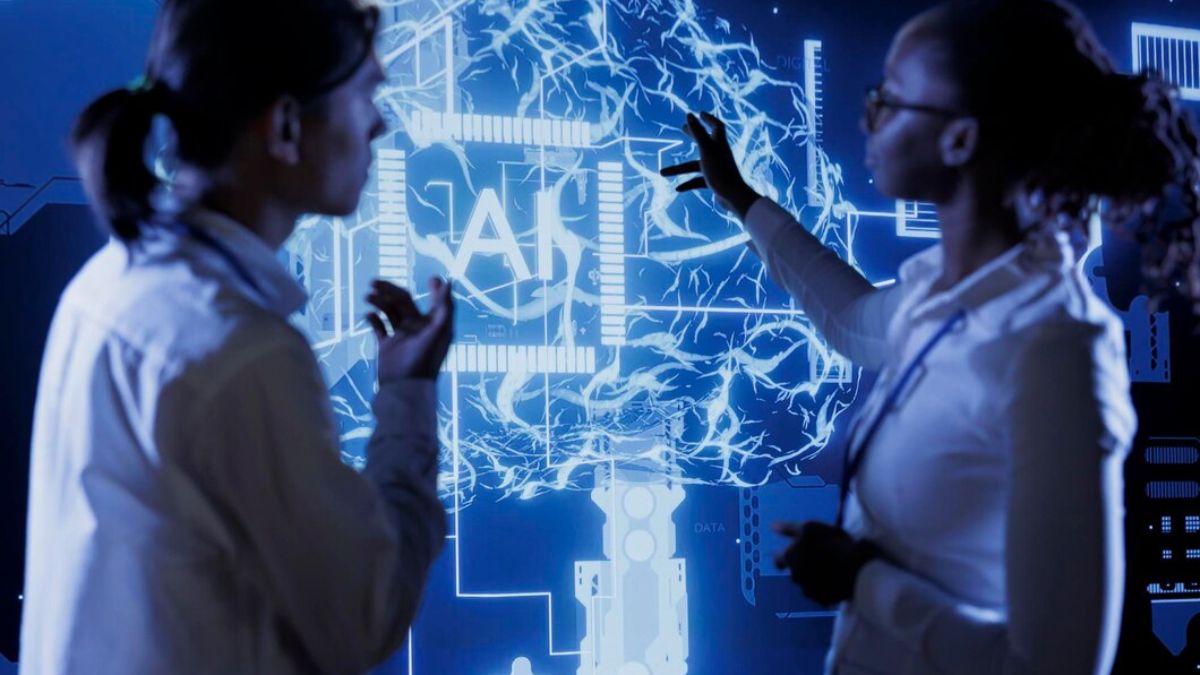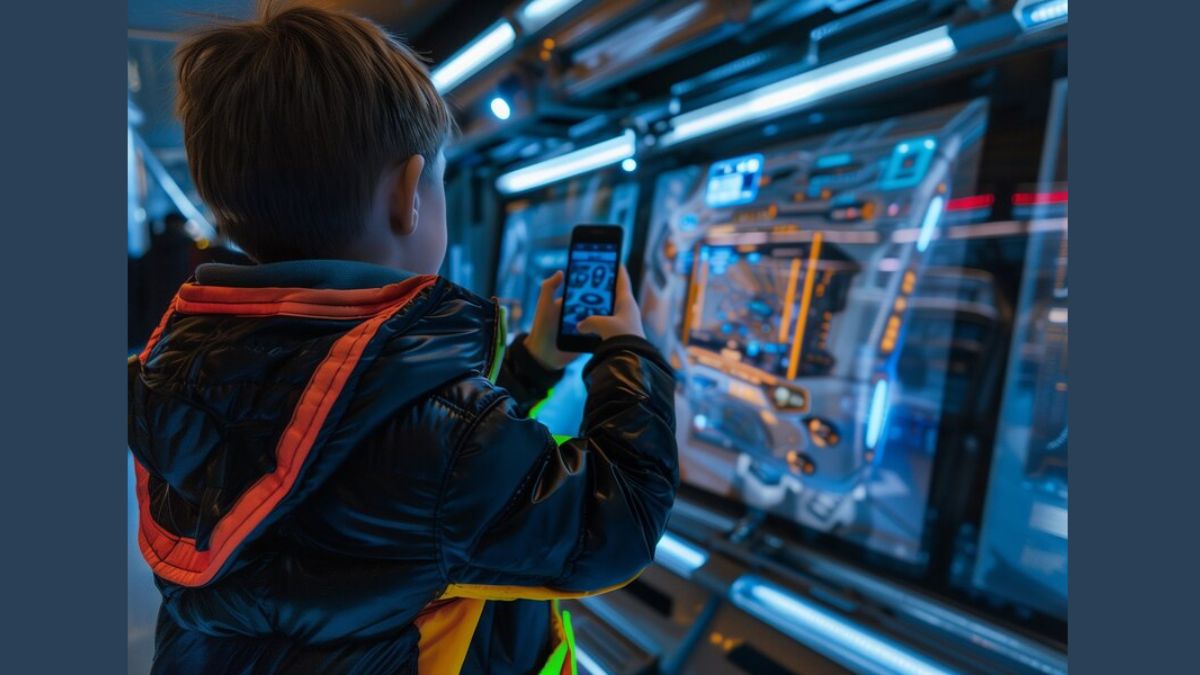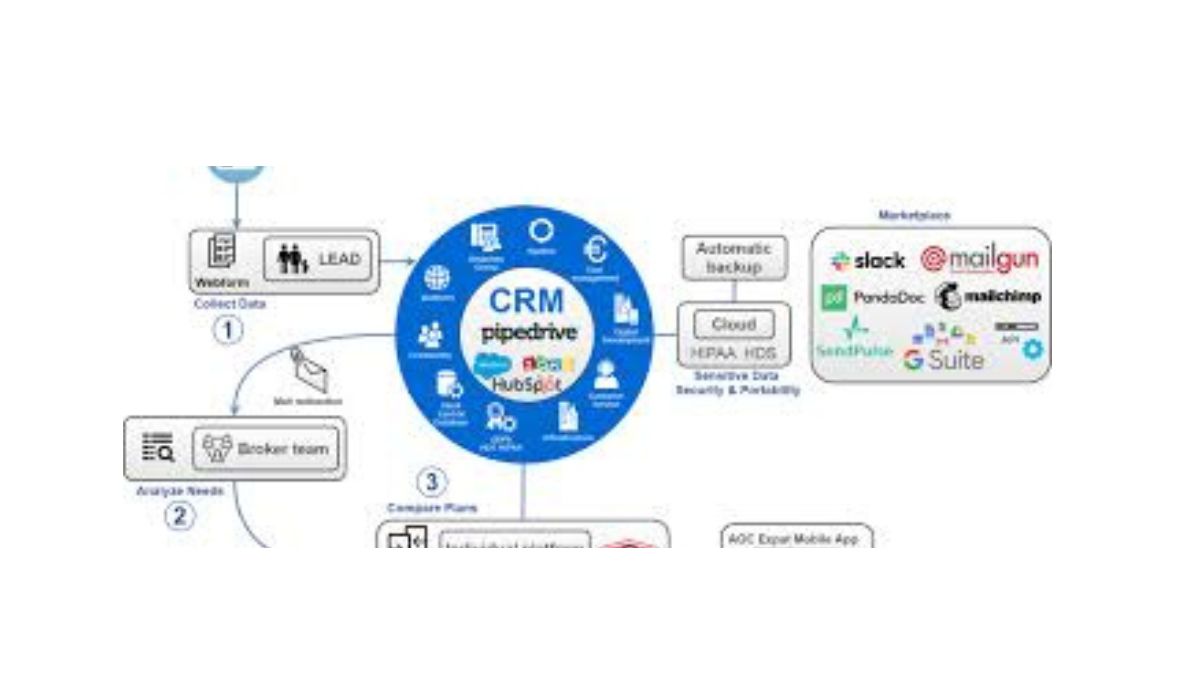TECHNOLOGY
The Future of AI Evolution: What Lies Ahead?

Artificial Intelligence (AI) has rapidly transitioned from a subject of theoretical discussion to a key driver in technological advancement across various sectors. Yet, as we stand at the cusp of a new era in AI, it is crucial to consider how this technology will continue to evolve and what trends will shape its future.
Key Trends in AI Evolution
Enhanced Human-AI Collaboration
The future of AI promises to blur the boundaries between human and machine capabilities. We will see more sophisticated AI systems that can complement human intelligence, enhancing productivity and creativity in ways previously unimaginable. This collaboration is likely to extend to various domains, including healthcare, education, and creative industries, where AI will assist in decision-making processes while humans provide the critical oversight and intuition.
Advancements in Natural Language Processing (NLP)
Natural Language Processing will continue to evolve, leading to AI systems that can understand and generate human language with greater nuance and context. This will not only improve virtual assistants and chatbots but also revolutionize how businesses interact with customers, making these interactions more personalized and efficient. Future NLP advancements will likely enable AI to engage in conversations that are indistinguishable from those with humans.
AI in Edge Computing
As devices become smarter, there’s a growing trend towards processing data closer to its source, known as edge computing. AI will play a pivotal role in this domain by enabling real-time data processing and decision-making at the device level. This shift will be particularly beneficial for IoT applications, where timely insights from data are paramount for performance and innovation.
Ethical AI and Governance
With great power comes great responsibility. The evolution of AI necessitates a parallel evolution in ethical guidelines and governance. There will be increased focus on developing frameworks to ensure AI systems are transparent, fair, and accountable. Addressing concerns such as bias, privacy, and security will be crucial as AI becomes more integrated into our daily lives.
AI and the Workforce
The impact of AI on the workforce is a subject of both concern and opportunity. While automation may replace certain jobs, it will also create new roles that require advanced skills in AI management and development. Preparing the workforce for this transition will be essential, highlighting the need for education systems to adapt and focus on AI literacy and reskilling initiatives.
Personalization and Predictive Analytics
AI will bring unprecedented levels of personalization and predictive analytics, transforming how businesses engage with consumers. By analyzing vast amounts of data, AI can anticipate customer needs and preferences, allowing for tailored experiences and proactive solutions. This trend will enhance customer loyalty and drive business growth through more effective marketing and customer service strategies.
Conclusion
The future of AI is poised to bring about significant changes across all aspects of society. By understanding and harnessing these trends, businesses, governments, and individuals can prepare for an AI-driven world that promises efficiency, innovation, and improved quality of life. However, along with these benefits, it is crucial to address the challenges and ethical considerations that come with AI’s evolution to ensure a future that benefits all.
AI evolution is not just about technology—it’s about the collective potential of humans and machines working together to create a better tomorrow. By anticipating these trends, we can better position ourselves to take advantage of AI’s transformative power.
TECHNOLOGY
The Power of Cradible in the Digital Age

In today’s fast-paced digital world, establishing trust and credibility is more crucial than ever. Whether you’re a seasoned entrepreneur or an up-and-coming influencer, your reputation can make or break your success. Enter “Cradible”—a concept that encompasses both ‘credibility’ and ‘ability.’ This blog post will guide you through understanding what Cradible means, how it influences your personal and professional life, and ways to enhance it for greater success.
What is Cradible?
Cradible is a blend of two essential qualities—credibility and ability. These traits together form the backbone of trustworthiness in any professional field. Credibility refers to how believable and reliable someone is, usually based on past actions, qualifications, and integrity. Ability, on the other hand, is about having the skills and competencies to perform tasks effectively.
To be considered Cradible, one must not only possess the necessary skills but also demonstrate them in a trustworthy manner. This combination assures others that you are not only capable but also honest and ethical in your dealings. In an interconnected world where misinformation and deceit can easily spread, being Cradible helps you stand out as a beacon of dependability.
The Importance of Being Cradible
In a digital era where anyone can publish anything online, distinguishing truth from falsehood can be challenging. For this reason, being Cradible has become a vital asset. Whether you’re selling a product, providing a service, or delivering information, people need to trust that you’re delivering on your promises. Without credibility, your ability, no matter how great, might go unnoticed.
Businesses and individuals who are Cradible tend to foster stronger relationships with their audiences. They are more likely to enjoy repeat customers, gain referrals, and receive positive word-of-mouth. In turn, this trust can enhance customer loyalty and brand reputation. Being Cradible can set you apart from competitors and create a lasting impression on those you serve.
Building Trust Through Cradibility
Achieving Cradibility involves more than just a single action; it’s about consistent behavior over time. Being transparent about your intentions and openly communicating with your audience are crucial first steps. People need to believe that you’re straightforward and have nothing to hide.
Next, delivering high-quality goods and services consistently will reinforce your ability and reliability. Meeting or exceeding expectations shows that you are dependable and committed to excellence. Positive testimonials and reviews from satisfied clients can further bolster your credibility.
Finally, demonstrate your expertise by sharing valuable insights and knowledge. This could be through blog posts, webinars, or social media platforms. When you offer useful information without expecting anything in return, you establish yourself as an authority in your field, which enhances your perceived Cradibility.
The Role of Cradibility in Marketing
In marketing, Cradibility is an invaluable tool. Consumers today are inundated with advertisements and promotions, making them cautious and discerning. To capture their attention and earn their trust, marketers need to utilize Cradible strategies.
Authentic storytelling is one such strategy. Sharing real stories and experiences that reflect your brand’s values can resonate deeply with audiences, building an emotional connection. Furthermore, collaborating with trusted influencers can lend some of their credibility to your brand and help reach prospective customers.
Transparency in marketing efforts is also critical. Clearly communicate what your products or services can do and avoid making exaggerated claims. When customers see a brand as honest and reliable, they are more likely to engage positively and make informed purchasing decisions.
Cradibility in Leadership
For leaders, being Cradible is essential for inspiring and guiding teams. Employees look up to leaders who exhibit both competence and integrity. When a leader is Cradible, team members feel more confident in their direction and are motivated to follow their lead.
Effective leaders model Cradible behavior by being accountable and owning up to mistakes. They also empower their teams by fostering open communication and encouraging feedback. This creates a work environment built on trust, where everyone feels valued and respected.
Additionally, Cradible leaders are continuous learners. They invest time in enhancing their skills and knowledge, demonstrating that they are committed to their growth and the growth of their team. This ongoing development underscores their ability and commitment to excellence.
Enhancing Personal Cradibility
Your Cradibility extends beyond professional realms—it’s vital in personal interactions too. Start by being true to your word. Keeping promises and commitments reinforces your trustworthiness. Even small gestures of reliability, like punctuality, can significantly impact how others perceive you.
Being authentic and genuine in your interactions is equally important. People appreciate honesty, even when it involves admitting a lack of knowledge or a mistake. Vulnerability can strengthen relationships by fostering a sense of mutual respect and understanding.
Lastly, practice active listening. Show that you value others’ opinions and perspectives by giving them your full attention. When people feel heard, they are more likely to trust and respect you, strengthening your Cradibility in personal connections.
Cradibility in Customer Service
Customer service is a frontline representation of your brand, making Cradibility crucial in this area. Customers want to interact with representatives who are knowledgeable, empathetic, and genuinely eager to help.
Providing excellent customer service starts with effective training. Equip your team with the skills and resources they need to address customer inquiries accurately and efficiently. Encourage them to be patient listeners and problem-solvers who prioritize the customer’s needs.
Additionally, soliciting feedback from customers shows that you value their input and are committed to improvement. Implementing their suggestions can lead to enhanced service and increased satisfaction, reinforcing your brand’s reliability.
Leveraging Cradibility in Content Creation
Content creators can greatly benefit from being Cradible. With so much content available online, audiences seek creators they can trust for accurate and insightful information. Start by thoroughly researching your topics and ensuring that facts are substantiated by credible sources.
Consistency is key. Regularly publishing high-quality content builds a loyal audience that anticipates your updates. Engage with your audience by responding to comments and questions, showing that you care about their thoughts and experiences.
Creative storytelling is another powerful way to showcase Cradibility in content creation. Share personal anecdotes and real-life examples that support your message and resonate with your audience. This emotional connection can enhance your credibility and foster a sense of community among your followers.
Cradibility in Networking
Networking is an essential aspect of professional growth, and being Cradible can significantly impact your success. When meeting new people, whether in person or online, first impressions matter. Present yourself confidently and authentically, showcasing both your abilities and your integrity.
Follow through on your commitments, such as attending events or meetings you agreed to. Reliability builds trust and respect among your network, making individuals more likely to recommend you for opportunities.
Finally, give as much as you receive. Share your knowledge, resources, and connections generously. Helping others succeed not only strengthens relationships but also enhances your reputation as a Cradible professional.
Cradibility in Social Media
Social media platforms offer a unique opportunity to establish and showcase your Cradibility. Begin by being transparent about your intentions and maintaining consistency with your brand’s values across all platforms.
Engage authentically with your followers by responding to comments and messages promptly. Show appreciation for their support and encourage meaningful discussions. Sharing behind-the-scenes content or personal stories can also humanize your brand, making it more relatable and trustworthy.
Furthermore, collaborate with other credible influencers or brands to expand your reach and share their audience’s trust. By aligning with those who share your values, you reinforce your Cradibility and attract loyal followers.
Creating a Culture of Cradibility
Incorporating Cradibility into your organization’s culture can lead to long-term success. Start by setting clear expectations and guidelines that emphasize the importance of trust and integrity. Provide training and resources to help employees embody these values in their work.
Recognize and reward employees who consistently demonstrate Cradible behavior. This not only motivates individuals but also sets a standard for others to follow. Encouraging transparency and open communication in all aspects of the business reinforces a Cradible culture.
Additionally, lead by example. When leadership models Cradibility, it inspires the entire organization to do the same, creating a cohesive and trustworthy environment that benefits both employees and customers.
Conclusion
In the digital age, being Cradible is more important than ever. From businesses to individuals, the combination of credibility and ability sets you apart and fosters trust among your audience. By consistently demonstrating these qualities in your actions, communications, and relationships, you build a solid foundation for success.
Whether you’re striving for professional growth, enhancing customer service, or building a personal brand, prioritize Cradibility at every step of your journey. Not only will this strengthen your reputation, but it will also create lasting connections and opportunities for growth in an ever-evolving digital world.
TECHNOLOGY
Diving Into the Latest With Newztalkies

In a world brimming with information, staying up-to-date with the latest happenings across various fields can be a daunting task. That’s where Newztalkies.com steps in, offering a diverse range of content that keeps readers informed and entertained. Whether you’re keen on technology, fascinated by history, or looking for practical tips, Newztalkies.com has something for everyone. In this blog post, we’ll take you through what makes Newztalkies.com a go-to source for news and insights.
The Allure of Technology News
Technology is an ever-evolving landscape that influences every aspect of our lives. Newztalkies.com recognizes this and provides readers with the latest tech news and trends. From groundbreaking innovations to practical tech tips, the site ensures you stay ahead of the curve.
For instance, one might find articles on AI advancements, like AI headshot generators that reshape online identities. These tools help users present themselves professionally on digital platforms, ensuring their online personas reflect who they truly are.
Exploring Urban Living and Pest Control
Living in vibrant cities has its perks, but it comes with challenges too, like pest control. Newztalkies.com offers guides on managing urban pests, highlighting strategies tailored to specific cities like Perth and Adelaide. These articles provide homeowners with essential tips to maintain safe and healthy living environments, addressing common issues like ants and cockroaches.
For example, readers get insights into why regular inspections are crucial in cities with varying climates, ensuring homes are safeguarded year-round.
A Journey Through History with the Samurai Sword
For history enthusiasts, Newztalkies.com dives into intriguing topics like the samurai sword, or katana. This weapon isn’t just a tool of war; it’s a symbol of honor and craftsmanship. Articles explore the katana’s cultural significance, design, and the artisans who craft these masterpieces, offering readers a rich understanding of its place in history.
By engaging with such content, readers can immerse themselves in the rich tapestry of history, gaining perspectives that are both educational and captivating.
The Art of Storytelling in Modern Journalism
The way we consume news has transformed. Newztalkies.com emphasizes the power of storytelling in journalism, presenting news in a format that’s engaging and relatable. This approach helps readers connect with stories on a personal level, making the information memorable and impactful.
Take, for instance, features on interactive storytelling—these pieces highlight how technology merges with journalism to create immersive experiences, drawing readers into the narrative like never before.
Navigating DIY and Home Improvement
Practical advice is invaluable, and Newztalkies.com excels at providing readers with actionable tips. Whether it’s basement waterproofing to prevent water damage or gutter maintenance to keep homes safe, the platform offers comprehensive guides that empower readers to tackle home improvement projects with confidence.
Such articles not only educate but also inspire readers to take proactive steps in maintaining their homes, ensuring safety and efficiency.
Engaging Content Across Diverse Topics
Beyond the core categories, Newztalkies.com covers a wide array of subjects, ensuring there’s something for everyone. From the latest sports entertainment updates to exploring social media trends with guides like MakeMeFamous Australia, the site caters to diverse interests, keeping readers engaged and informed.
For instance, sports fans can find recaps and highlights, while those interested in social media growth can learn strategies to boost their online presence.
Focusing on SEO and Visibility
To reach a wider audience, Newztalkies.com employs SEO strategies that enhance content visibility. Articles are peppered with relevant keywords naturally, ensuring they rank well in search engine results without compromising readability.
This strategic approach not only drives traffic but also ensures that readers find the content they’re interested in easily, enhancing their overall experience.
The Impact of Reader Engagement
Reader engagement is at the heart of Newztalkies.com’s success. By inviting readers to comment and share their thoughts, the platform fosters a sense of community. This interaction enriches the content, as diverse perspectives contribute to a more comprehensive discussion.
Engaged readers are more likely to return, creating a loyal audience base that values the insights and information provided.
Staying Ahead with Regular Updates
Frequent updates ensure that Newztalkies.com remains a reliable source for timely news and insights. Readers can count on fresh content that reflects the latest trends and information, keeping them informed about developments as they happen.
This commitment to regular updates reinforces the site’s position as a go-to resource for news and knowledge.
Conclusion
Newztalkies.com stands out as a multifaceted platform that caters to a wide range of interests. By offering engaging, informative, and well-researched content, it ensures that readers stay informed and entertained. Whether you’re passionate about technology, history, or home improvement, there’s something here for you.
For those eager to explore more, consider bookmarking Newztalkies.com as your daily source of diverse news and insights. You’ll be joining a community of curious minds, all seeking to stay informed in a rapidly changing world.
TECHNOLOGY
Unveiling the Night Tech Thermal Scope Adventure Awaits

In a world where technology continuously reshapes our experiences, the Night Tech Thermal Scope stands out as a game-changer for outdoor enthusiasts. Whether you’re a seasoned hunter, a wildlife observer, or someone who enjoys night-time adventures, the right equipment can make all the difference. This post explores the cutting-edge features and applications of the Night Tech Thermal Scope, offering insights into how it can transform your nocturnal explorations.
Discovering the Power of Thermal Imaging
Thermal imaging has revolutionized the way we perceive the night. Unlike traditional night vision, which relies on ambient light, thermal scopes detect the heat emitted by objects. This means you can spot animals or objects in complete darkness, dense fog, or heavy foliage. The Night Tech Thermal Scope harnesses this technology to provide unparalleled clarity and detail.
The Night Tech Thermal Scope’s advanced sensors capture even the slightest
temperature differences, allowing you to see clearly in various conditions. This feature is particularly beneficial for hunters who need to detect game from a distance. Additionally, the scope’s high-resolution display ensures that the images are sharp and detailed, making it easier to identify your target.
Thermal imaging isn’t just for hunting; it’s also invaluable for wildlife observation. Imagine watching nocturnal animals in their natural habitat without disturbing them. The Night Tech Thermal Scope makes this possible, offering a unique perspective on the animal kingdom that was once out of reach.
Key Features of the Night Tech Thermal Scope
The Night Tech Thermal Scope is packed with features designed to enhance your outdoor experience. Its rugged construction ensures durability in harsh environments, while its user-friendly interface makes it accessible even for beginners. One standout feature is its long battery life, allowing for extended use without frequent recharging.
The scope’s zoom capabilities are another highlight. With adjustable magnification, you can get a closer look at distant objects without compromising image quality. This is particularly useful for hunters who need to assess their targets before taking a shot. Additionally, the scope’s customizable reticles offer versatility for different types of shooting.
For those who value recording their adventures, the Night Tech Thermal Scope offers video recording and image capture. Documenting your encounters with wildlife or sharing your hunting achievements has never been easier. These features make the scope not only a tool for exploration but also a means of storytelling.
Enhancing Safety with Thermal Technology
Safety is a top priority for anyone venturing into the wilderness, and the Night Tech Thermal Scope contributes significantly to this aspect. By enabling users to see in complete darkness, the scope reduces the risk of encountering dangerous animals or obstacles. This is particularly important for hikers and campers who often find themselves navigating unfamiliar terrain at night.
The thermal detection capabilities of the scope also aid in search and rescue operations. In situations where visibility is compromised, the ability to identify heat signatures can be life-saving. Whether you’re part of a rescue team or simply want to be prepared for emergencies, the Night Tech Thermal Scope is an invaluable asset.
Additionally, the scope’s built-in rangefinder helps users maintain a safe distance from potential threats. By accurately measuring the distance to a target, you can make informed decisions about your next move. This feature is especially useful for hunters who need to ensure their safety while pursuing game.
Exploring Applications Beyond Hunting
While the Night Tech Thermal Scope is a favorite among hunters, its applications extend far beyond this realm. Birdwatchers and nature enthusiasts can use thermal imaging to observe wildlife without disturbing their natural behavior. This opens up a new world of possibilities for those passionate about conservation and environmental studies.
The scope is also a valuable tool for home security. By detecting heat signatures around your property, you can monitor for potential intruders or unexpected visitors. This added layer of security provides peace of mind, whether you’re at home or away.
For educators and researchers, the Night Tech Thermal Scope offers opportunities for hands-on learning experiences. Students can explore the science behind thermal imaging and its various applications, fostering a deeper understanding of this innovative technology. The scope serves as both an educational tool and a source of inspiration for future innovators.
Tips for Maximizing Your Thermal Scope Experience
To get the most out of your Night Tech Thermal Scope, it’s important to familiarize yourself with its features and capabilities. Start by reading the user manual thoroughly and experimenting with the settings in a controlled environment. This will help you become comfortable with adjusting the scope according to your needs.
Practice makes perfect, so take the time to use the scope in different environments and lighting conditions. This will help you understand how thermal imaging works and how to interpret the images you see. The more you practice, the more confident you’ll become in using the scope effectively.
It’s also essential to keep your scope clean and well-maintained. Dust and debris can affect image quality, so regular cleaning is a must. Follow the manufacturer’s guidelines for maintenance to ensure that your scope remains in optimal condition for years to come.
The Future of Night Vision Technology
The Night Tech Thermal Scope represents just one example of how night vision technology is evolving. As innovations continue, we can expect even more advanced features and applications. The integration of artificial intelligence and machine learning could enhance object recognition and identification, further expanding the scope’s capabilities.
Future developments may also focus on improving size and weight, making thermal scopes more portable and accessible. This would benefit outdoor enthusiasts who require lightweight gear for extended trips. Additionally, advancements in battery technology could result in longer usage times, reducing the need for frequent recharging.
The growing interest in thermal imaging across various industries indicates a promising future for this technology. From military applications to consumer electronics, the possibilities are limitless. The Night Tech Thermal Scope is at the forefront of this movement, offering a glimpse into what’s possible.
Joining a Community of Enthusiasts
Owning a Night Tech Thermal Scope means becoming part of a community of like-minded individuals who share a passion for exploration and discovery. Online forums and social media groups provide platforms for users to share their experiences, tips, and advice. This sense of camaraderie enhances the overall experience and fosters connections with fellow enthusiasts.
Participating in events and workshops is another way to engage with the community. These gatherings offer opportunities to learn from experts, test new equipment, and exchange knowledge with others who share your interests. Whether you’re a seasoned professional or a newcomer, there’s always something to gain from these interactions.
By connecting with others, you can also stay informed about the latest developments in thermal imaging technology. Networking with industry professionals and staying updated on trends ensures that you’re always ahead of the curve. The Night Tech Thermal Scope community is a valuable resource for anyone looking to maximize their experience.
Ethical Considerations in Thermal Imaging
While thermal imaging offers numerous benefits, it’s important to consider the ethical implications of its use. Respecting privacy and adhering to regulations is essential when using the Night Tech Thermal Scope. Be mindful of where and how you use the scope to ensure that you’re not infringing on others’ rights.
Wildlife enthusiasts should prioritize the welfare of animals when observing them with a thermal scope. Avoid invasive or disruptive behavior that could stress or harm the creatures you’re watching. By practicing responsible observation, you contribute to the preservation of natural habitats and ecosystems.
For those using thermal imaging in security or surveillance contexts, transparency and accountability are paramount. Clearly communicate the purpose and scope of monitoring activities to all stakeholders, and ensure compliance with relevant laws and guidelines. Responsible use of technology fosters trust and promotes positive outcomes.
Enhancing Outdoor Adventures with the Night Tech Thermal Scope
The Night Tech Thermal Scope is a testament to how technology can enhance our connection with the natural world. By providing a new way to experience the night, the scope opens up endless possibilities for adventure and discovery. Whether you’re tracking game, observing wildlife, or securing your property, this innovative tool is your gateway to the unknown.
Equipped with the Night Tech Thermal Scope, you’ll be ready to explore new horizons and push the boundaries of what’s possible. Embrace the thrill of the night and uncover the secrets it holds with this groundbreaking piece of equipment. Adventure awaits for those who dare to venture into the shadows.
If you’re ready to elevate your outdoor experiences and harness the power of thermal imaging, consider investing in the Night Tech Thermal Scope. With its advanced features and user-friendly design, it’s the perfect companion for any nocturnal explorer. Discover the world in a whole new light—because the night is full of wonders waiting to be seen.
-

 FOOD9 months ago
FOOD9 months agoSure! Here are seven engaging blog post titles related to the concept of a “retail food product
-

 GENERAL8 months ago
GENERAL8 months agoTroubleshooting Common VRChat Login Issues: Tips and Tricks
-

 INSURANCE7 months ago
INSURANCE7 months agoNavigating the Future of Insurance with Technical Reserves in Flow Insurance
-

 TECH8 months ago
TECH8 months agoDiscover Reliable Abithelp Contact Solutions with JustAnswer
-

 GENERAL9 months ago
GENERAL9 months agoExploring the World of Erothots: What You Need to Know
-

 TECH3 months ago
TECH3 months agoWhat You Need to Know About the 346 Area Code
-

 Codes3 months ago
Codes3 months agoWhat You Need to Know About the 904 Area Code
-

 FOOD9 months ago
FOOD9 months agoSure! Here are seven engaging blog post titles related to a “502 food blog
